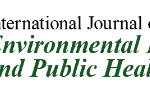My name is Miguel Moital and I am a Principal Academic in Events Management in the Department of Sport and Events Management, BUBS.
I have been an expert reviewer for the Kazakhstan’s National Centre of Science and Technology Evaluation (NCSTE) since 2013, and I have just completed another round of evaluations. NCSTE is state body responsible for the scientific and technical evaluation of grants and program-targeted funding in the country.

I mainly review research proposals in the fields of tourism, hospitality, leisure, events and sport, but more recently I have also been involved in assessing grant applications focusing on wider business and marketing topics.
Grant applications, irrespective of the type of call, follow a standard format which includes the following sections:
- Abstract
- Explanatory note (where the applicant clarifies which call it is responding to)
- General concept of the project (including aim and objectives)
- Scientific novelty and significance of the project
- Research methods and ethical issues
- Research Group and program management
- Justification of requested funding
- Project Implementation Plan
- Expected results
- References
Each section has character limits which means proposals tend to be between 10-12k words.
There are several differences between what is expected from an application to UK Research Councils and to NCSTE:
- The scope of projects submitted to NCSTE calls tend to be much broader and less specific. Methodologies are quite broad too, often simply stating generic methods to be used without providing details about their implementation. The explanation about how methods will contribute to achieving the different objectives of the project is often limited.
- Academics generally have quite low H-Indexes, mainly due to very few publications in English language journals and books. Publications are overwhelmingly in Kazakh and Russian outlets. There is a list of publications approved by a state body (Committee for Quality Assurance in the Field of Science and Higher Education) and the decision to where to submit papers is largely underpinned on the committee’s recommendations. The research system does not seem to viewthe dissemination of results in English language journals and books as a priority.
One main lesson I Iearned is that when assessing NCSTE proposals I cannot simply use the standards and expectations I would bring to the process if I was assessing UK proposals. I have to bear in mind the unique features of Kazakhstan’s higher education sector and the country’s research practice, and I have learned to calibrate my expectations over the years. At the same time, as an international expert I am also expected to make observations and offer suggestions that reflect international best practice, which is something I do whenever it can help grant applicants to improve the international standing of their research.
Participating in the grant proposals evaluation exercise has been a interesting and rewarding experience. It puts our own practice in to perspective and is a means to expand my knowledge about the different research systems from across the world.
 BU’s Sascha Dov Bachmann appointed Reviewer to The Estonian Research Council (ETAg)
BU’s Sascha Dov Bachmann appointed Reviewer to The Estonian Research Council (ETAg) Maximise the success of your public engagement with free, expert training on evaluation
Maximise the success of your public engagement with free, expert training on evaluation Maximise the success of your public engagement with free, expert training on evaluation
Maximise the success of your public engagement with free, expert training on evaluation










 BU paper among top 20 most cited papers
BU paper among top 20 most cited papers Nepal migrant workers returning from India
Nepal migrant workers returning from India New BU midwifery publication
New BU midwifery publication UK Turing Scheme: My student mobility programme in Nepal
UK Turing Scheme: My student mobility programme in Nepal MSCA Postdoctoral Fellowships 2025 Call
MSCA Postdoctoral Fellowships 2025 Call ERC Advanced Grant 2025 Webinar
ERC Advanced Grant 2025 Webinar Horizon Europe Work Programme 2025 Published
Horizon Europe Work Programme 2025 Published Horizon Europe 2025 Work Programme pre-Published
Horizon Europe 2025 Work Programme pre-Published Update on UKRO services
Update on UKRO services European research project exploring use of ‘virtual twins’ to better manage metabolic associated fatty liver disease
European research project exploring use of ‘virtual twins’ to better manage metabolic associated fatty liver disease